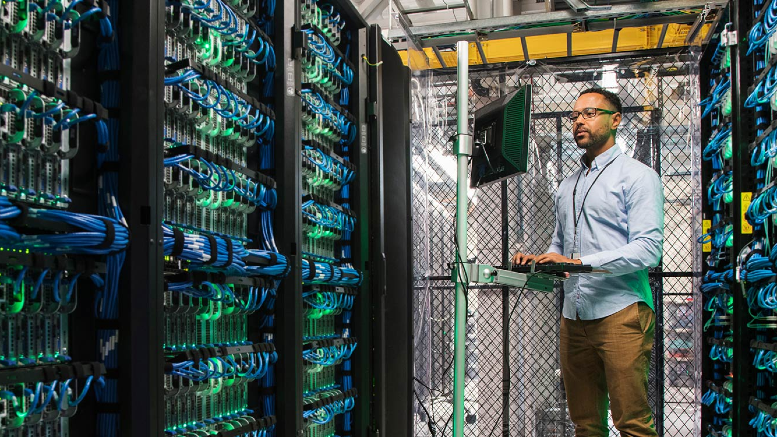Speeding up the supply chain: Data’s role in logistics optimization
fevereiro 13, 2024 / Unisys Corporation
Short on time? Read the key takeaways:
- Modern supply chains face shifting customer expectations, including real-time visibility, two-day delivery and exceptional experiences.
- Data has become a critical asset in addressing these challenges.
- While effective data strategies can benefit all supply chain segments, aligning them with specific business outcomes to suit each segment’s unique needs is crucial.
- Advanced technologies like quantum computing can be critical in supply chain optimization by enabling faster data processing and real-time decision-making.
Two-day delivery? Too slow. Getting an order to a customer used to be enough. No longer.
Customers now expect real-time visibility, on-time delivery and exceptional experiences, and supply chains must adapt to remain competitive. It's a challenge that requires a strategic mindset, not unlike filling every nook and cranny of pallets and unit load devices. Data has emerged as a critical asset in navigating these challenges, offering insights that can optimize logistics, reduce costs and improve overall efficiency.
A recent webinar hosted by Unisys and FreightWaves, “Harnessing data for smarter logistics management,” explored how data-driven services address modern supply chain complexities. During the chat, Sean Tinney, vice president of Enterprise Computing Solutions at Unisys, and Caroline Woodland, senior director of emerging solutions at Unisys, joined Grace Sharkey, staff writer at FreightWaves and host of FreightWaves Radio Drive Time, to discuss key challenges, strategies and technologies that are shaping the future of supply chain management.
Want to watch the webinar replay? Check it out here.
Want the TLDW (too long, didn’t watch) recap? Read the key questions and answers below.
1. What are the key challenges and demands that supply chains face?
Supply chains today face evolving challenges and demands, transforming supply chain operations and logistics management from a cost center to a competitive advantage. In the past, the focus was primarily on ensuring products reached their destination safely and at a low cost. However, the "Amazon effect" has changed the game. Customers now expect real-time visibility into their shipments and prioritize on-time delivery and overall experience.
In response, supply chains have transitioned from being cost centers to becoming key drivers of customer experience and differentiation against competitors. Rising supply chain costs, fuel expenses and technology investments compound this shift.
2. How is data used within supply chains today, and why is it so crucial?
Data is pivotal in addressing supply chain challenges and is often called the "key to the kingdom." This data guides companies through the labyrinth of modern logistics. This is because data enables organizations to optimize their logistics and reduce costs. By harnessing data and using it to inform logistical decisions, your company can improve its bottom line and better navigate the ups and downs of the supply chain market.
3. What are some of the challenges that exist in collecting and controlling data within supply chains?
First, data in supply chains can be highly distributed and fragmented across various systems, vendors, subcontractors and third parties. This makes it challenging to document and make the data readily available. Navigating these challenges requires agility and adaptability.
Second, data often exists in different formats, including handwritten notes, making it difficult to integrate into digital systems. The level of digitization and technology adoption can vary significantly among supply chain partners, further complicating data collection and control efforts. Overcoming these challenges involves creating a seamless process for data capture and integration.
4. How can good data strategies benefit all supply chain segments, from freight forwarders to carriers to warehousing managers?
It's crucial to start with a clear understanding of each segment's specific pain points and needs to ensure data strategies benefit all parts of the supply chain. This involves developing use cases and testing solutions to unique challenges. The key is to align data strategies with business outcomes, such as optimizing capacity, reducing costs and improving sustainability.
Don’t forget flexibility. It's essential to allow different segments to consume data solutions in a way that suits your specific needs, whether through APIs, applications, or other methods.
5. What are the key factors and steps in implementing data-driven solutions for supply chain optimization?
Implementing data-driven solutions for supply chain optimization involves several key factors and steps:
- Define clear business outcomes: Start with a clear understanding of what you want to achieve, whether it's increasing revenue, reducing costs, improving sustainability or enhancing customer experience.
- Create a data strategy: Analyze your data and identify the gaps you might need to fill before implementing a new solution.
- Identify data gaps: Understand where data gaps exist in your supply chain process and where data is needed but currently unavailable.
- Develop use cases: Build specific use cases based on identified pain points and challenges within your supply chain segments.
- Test and validate: Collaborate with clients or partners to test and validate your data-driven solutions to ensure they address real-world problems effectively.
- Focus on process integration: Ensure that data capture is integrated into your process flow, making it seamless and efficient for users.
- Consider using next-gen technologies: Explore advanced technologies like quantum computing and high-performance computing that can help enable faster data processing and real-time decision-making
- Continuously improve: Monitor and improve your data-driven solutions to adapt to changing circumstances and evolving business needs.
By following these steps and focusing on process improvement and business outcomes, your organization can successfully implement data-driven solutions for supply chain optimization.
6. What role does technology like quantum computing play in supply chain optimization?
Technologies like AI and quantum computing can play a critical role in supply chain optimization by enabling faster and more complex data processing. Quantum computing can run advanced analytics and AI models at unprecedented speeds, allowing for real-time decision-making and adapting to dynamic situations. The technology can work so fast that freight forwarders can generate custom pallet build plans in seconds until they find the perfect fit. This technology is especially valuable when speed is a commodity, such as optimizing routes, maximizing capacity and responding to unexpected disruptions. Quantum computing enhances the efficiency and responsiveness of supply chain operations, ultimately leading to cost savings and improved customer satisfaction.
Are you ready to join the supply chain data revolution?
Discover the power data, AI, quantum computing and advanced analytics can have on your supply chain by reading more about Unisys Logistics Optimization™.





















